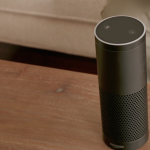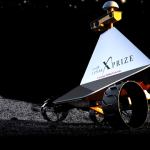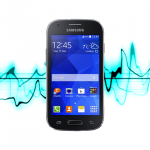I take back my praise for Amazon Echo

You just gotta love Amazon. This morning, at long last, I received my invitation for Echo, the sizzlingly voice-controled streaming speaker that I raved about just two months ago. As a Prime member, I pay half-price, just $99. What a deal! Since then, I jealously waited while reading what others blogged about how much they enjoyed their Echoes. The device fits squarely where I contend is the next iteration in user interfaces: voice. Touch is just so passé.
In retail, customer impressions are everything. My first reaction was excitement, but the second turned it to dust. This thing won't ship until sometime between May and July? Seriously? It's like a bad Consumer Electronics Show joke, where the hottest tech device in this solar system debuts in January, but sales don't start until November. Don't sell me something I can't get for at least five fraking months!
US military worried about stolen cars being used as weapons

The US military is preparing to wage war on car crime with the specific remit to develop a plan with manufacturers that prevents hackers stealing cars and one day turning them into weapons.
A group of hackers was recently hired by the US Defense Department to see if they could break into a 2012 model car and computer scientist Kathleen Fisher, who heads the group, showed that an electronic key could be created to unlock to car’s network.
Analog TV frequencies could be used for 'super Wi-Fi', say scientists

Outdated analog TV frequencies should be used to create new space for "super Wi-Fi" that would boost the world’s economy and take the strain off overloaded mobile networks even though worries persist over how workable they are.
Scientists from the Karlsruhe Institute of Technology [KIT] are calling for governments to hand over the unused frequencies so that a widespread free Wi-Fi network can be created.
New battery tech can charge your smartphone in just 30 seconds

Fancy fully charging your phone up in just half a minute? Even with modern smartphones, a full charge from close to zero can take a good long wait and a major inconvenience, particularly when you’re having to plug the thing into a power outlet if you don’t have a handset with wireless charging.
While there are already "turbo charger" systems from, for example, Motorola, which can juice up a phone in just 15 minutes, an Israeli firm reckons it has a system which can charge a handset with a full day’s worth of power in just 30 seconds.
Energous: Wirelessly charging electrical devices over-the-air is safe and not wasteful [Q&A]

Three weeks ago, Energous announced a partnership with appliance manufacturer Haier Wireless, to add its WattUp wire-free charging transmitters to a wide range of home appliances. This will allow phones, tablets and other devices to charge over-the-air, just by being in range of an equipped appliance, such as a washer, microwave or fridge.
I spoke to Gordon Bell, Director of Marketing for Energous, to find out more about WattUp and the company's future plans.
Elon Musk plans to launch 700 satellites to deliver global internet access

Elon Musk is apparently set to bring about a plan to launch a bunch of satellites into space with the intention of delivering internet access around the world.
The entrepreneur who is now more famous for his electric cars via the firm he co-founded, Tesla Motors, is no stranger to space shenanigans given that he also founded SpaceX (Space Exploration Technologies Corporation) back in 2002 to explore and perfect rockets and space transport in general.
Oculus Rift VR headset to go on sale in time for Christmas 2015

If you’re desperate to get your hands on a consumer version of Oculus VR’s flagship virtual reality headset, there’s good news and bad.
Speaking at the Web Summit technology conference in Dublin on Tuesday, Brendan Iribe, founder and CEO of Oculus VR, said that it would be "months, not years" before the highly anticipated product is made available to buy. But before you get too excited, Iribe clarified his statement by adding he meant "many months" -- so not any time soon.
British police using data to predict crime before it happens
Why are analyst predictions always so wrong?

We used to live and survive in the savanna in a simple, local and linear world. When we had to kill animals for food we would think and act in a linear way to realize our goal. A relatively easy, stable and predictable world. The linear and local world is ingrained in our mental model of the world.
However, in the last few decades we have witnessed the increased importance of exponential phenomena, mainly driven by technology. The tipping point came in 1965, when Intel co-founder Gordon Moore, introduced Moore's law which predicted that computing power would double every two years. So what is the real value of tech analysts and market researchers in an exponential world? Do they provide business benefit? Or are they particularly valuable in a more linear and predictable world?
What is Magic Leap, the mystery startup valued at $1bn?

Silicon Valley startup Magic Leap is valued at over $1 billion. It just announced the close of its $542 million (£338 million) Series B, featuring investors led by Google, Inc., and including KPCB, Andreessen Horowitz, Obvious Ventures, Qualcomm and Legendary Entertainment. But there's a catch: no one quite knows what it is.
We love a good "mysterious startup" story, and Magic Leap has set our mystery senses tingling. The website for the startup is suitably vague, featuring only a beautiful animation of a tiny pint-sized elephant rearing and trumpeting out of a person's cupped hands. And a trippy picture of a whale flying over a beach.
Home appliances set to become wireless charging points for phones and other devices

At the moment, when you want to charge your smartphone or tablet you have to either plug it in, or (if it supports the technology) place it on a wireless charging mat. That's all set to change though, as soon you’ll be able to charge your electrical equipment simply by being near a fridge or washing machine.
It sounds like crazy science fiction, but it’s just very clever science. Energous today announces a partnership with Haier Wireless, the world's largest appliance manufacturer, that will see its WattUp wire-free charging transmitters embedded in a wide range of home appliances including refrigerators, washing machines, dryers, microwaves, stoves and more.
Oculus Rift owners will be able to go to the moon

US scientists have developed a robot that will allow Oculus Rift owners to see the surface of the Moon as if they were really there.
Researchers at Carnegie Mellon University have developed the project to compete for the Google Lunar XPrize, which is offering $30 million to a team that can send video back from the Moon.
MIT wants to use your Tweets to solve society's problems

Twitter is handing MIT full access to its real-time public stream and archive, as well as $10 million over five years to help with its research into social patterns across the media. The data MIT gathers from a variety of media platforms will be used to reveal interaction patterns and shared interests between users, while it develops new collaborative tools and mobile apps for public communication and social organization.
Dick Costolo, CEO of Twitter said: "With this investment, Twitter is seizing the opportunity to go deeper into research to understand the role Twitter and other platforms play in the way people communicate, the effect that rapid and fluid communication can have and apply those findings to complex societal issues".
Immersion software adds rumbles and shakes to phone videos

Immersion, a company that specializes in adding an extra dimension to touch screen displays, has created new software to add a layer of feeling to smartphone videos.
With mobile devices becoming the primary video platform for many users, the company hopes to solve the problem of providing excitement on a small screen.
The near-future technology that will have the biggest impact on our lives

So what arenas of technology are going to make the most impact on the world over the next three years?
That's a question the 2014 KPMG Global Technology Innovation survey posed to some 768 technology business leaders, and according to the results, three of the top five disruptive technologies which should "change the way we work and live" are the Internet of Things, 3D printing, and biotech/healthcare.
Recent Headlines
Most Commented Stories
BetaNews, your source for breaking tech news, reviews, and in-depth reporting since 1998.
Regional iGaming Content
© 1998-2025 BetaNews, Inc. All Rights Reserved. About Us - Privacy Policy - Cookie Policy - Sitemap.
